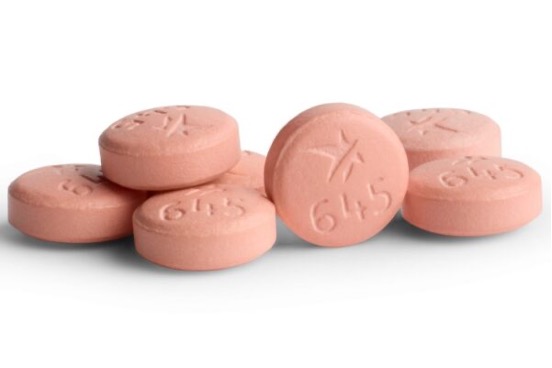FDA Approves First-Of-Its Kind Drug to Ease Menopause Symptoms
May 16, 2023
Source: drugdu
 471
471

An Astellas Pharma drug that treats hot flashes and night sweats from menopause is now approved by the FDA, a regulatory decision that makes the therapy the first one that hits a particular central nervous system target to ease the symptoms of this change in life.
The Friday approval of the drug, fezolinetant, covers the treatment of moderate-to-severe vasomotor symptoms caused by menopause. Tokyo-based Astellas will market the once-a-day pill under the brand name Veozah. In an email, the company said the new drug will carry a wholesale price of $550 for a 30-day supply. Astellas expects Veozah will become available within three weeks.
Menopause brings a decline in the production of estrogen and progesterone. The resulting hormonal imbalance can affect the way the body regulates body temperature, leading to hot flashes, the sudden and intense feelings of warmth. While hormone therapy is standard treatment for such vasomotor symptoms, these therapies can raise the risk of stroke, blood clots, or heart attack. Some women who have a history of cardiovascular problems are not candidates for hormone therapy. The Astellas drug provides them with a new non-hormonal option.
Veozah is a small molecule designed to block neurokinin 3 (NK3). Found in the central nervous system, this receptor’s role includes body temperature regulation. Approval of the Astellas drug is based on the results of two placebo-controlled Phase 3 studies, each lasting 12 weeks. The main goal of both was to measure the change in moderate-to-severe vasomotor symptoms. Across those studies, results showed that treatment with Veozah led to statistically significant reductions in the severity and frequency of these symptoms. The Phase 3 results were published in March in the journal The Lancet.
After completion of the 12-week studies, participants went on to a 40-week extension study designed to further evaluate Veozah’s safety. Those who were in the treatment group continued to receive the study drug. Participants who initially received a placebo were started on the Astellas therapy. The most common adverse reactions reported from the studies included abdominal pain, diarrhea, insomnia, back pain, hot flush, and elevated levels of liver enzymes.
The liver enzyme adverse effect could be a sign of drug toxicity. Veozah’s label includes a warning that the drug could lead to liver injury. The FDA said patients should have blood work done before starting treatment and routinely while receiving the therapy in order to monitor for liver problems. The agency added that the Astellas drug should not be taken by patients with cirrhosis, severe kidney damage, or end-stage renal disease.
Regulatory applications for Veozah are still under review in the European Union, Switzerland, and Australia. The FDA decision makes Veozah the first approved NK3-blocking drug, but others have pursued this target as a way to ease menopausal symptoms. Bayer has reached Phase 3 testing with elinzanetant, a drug it acquired via the 2020 acquisition of KaNDy Therapeutics. Acer Therapeutics advanced its NK3-targeting drug candidate, osanetant, as far as Phase 2a testing. In March, the biotech paused the program after reporting preliminary data showing that the drug did not lead to a statistically significant reduction in hot flash frequency or severity compared to a placebo.
Reference: https://medcitynews.com/2023/05/fda-approval-astellas-pharma-menopause-drug-hot-flash/
By editorRead more on
- The first subject has been dosed in the Phase I clinical trial of Yuandong Bio’s EP-0210 monoclonal antibody injection. February 10, 2026
- Clinical trial of recombinant herpes zoster ZFA01 adjuvant vaccine (CHO cells) approved February 10, 2026
- Heyu Pharmaceuticals’ FGFR4 inhibitor ipagoglottinib has received Fast Track designation from the FDA for the treatment of advanced HCC patients with FGF19 overexpression who have been treated with ICIs and mTKIs. February 10, 2026
- Sanofi’s “Rilzabrutinib” has been recognized as a Breakthrough Therapy in the United States and an Orphan Drug in Japan, and has applied for marketing approval in China. February 10, 2026
- Domestically developed blockbuster ADC approved for new indication February 10, 2026
your submission has already been received.
OK
Subscribe
Please enter a valid Email address!
Submit
The most relevant industry news & insight will be sent to you every two weeks.



